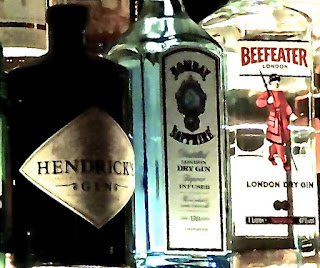For St. Patrick's Day, here's a post from a couple of years ago about Irish history and what you can learn about it from Irish crime writers.
=================
A passage in
Adrian McKinty's novel The Bloomsday Dead alerted me to a certain tendency in Belfast to romanticize the present and the past (though McKinty states the case more pungently), and I may first have heard the term
irregulars, for the anti-treaty military forces in the Irish Civil War, through
Kevin McCarthy.
The dicey subject of Irish-German relations in the middle of the twentieth century? Stuart Neville deals with one strand of its aftermath in his novel
Ratlines. (And it appears that
Declan Burke may do so as well, in his latest.) And Eoin McNamee wrote about the chilling sectarian hatred at the heart of one of Belfast's most notorious murder gangs in his novel
Resurrection Man.

The strange, orphaned position of Northern Ireland, unloved by both the United Kingdom and Eire (or is that
Ireland? Or
the South? Or
the Republic?) cannot have been portrayed more directly and more touchingly than in the passage of
Garbhan Downey's (I forget in which book) where a politician from the North tells a counterpart from the South something like: "I know you regard us as the unwanted child you'd rather tie up in a sack and toss into the river." And my first inkling that Irish history was more complicated than the Manichean pieties we get in America came when
Gerard Brennan took me to the Irish Republican History Museum off the Falls Road in Belfast.

I've just finished reading Part IV of
R.F. "Roy" Foster's
Modern Ireland 1600-1972, and I was periodically surprised and delighted when his entertaining, opinionated, analytical, non-ax-grinding history would touch upon subjects dealt with in some de
pth by each of the above-mentioned Irish crime writers. Foster's declaration, for example, that
"For all the rhetoric of anti-Partitionism, opinion in the Republic was covertly realistic about this point, too: the predominant note of modern Ireland in 1972 was that of looking after its own."
says in historical terms what Downey does in fictional ones, and induces a similar twinge of sympathy for Northern Ireland's people, if not its leaders.
So thanks, Irish crime writers, for writing entertaining popular fiction while casting an intelligent eye on the problematic present and past of your problematic country.
*
Foster's bibliographic essay at the end of
Modern Ireland mentions one Irish crime writer by name, though not for her crime fiction:
"There are few first-rate biographies for the period, one glowing exception being R. Dudley Edwards' Patrick Pearse: The Triumph of Failure, which illuminates far more than its subject."
Looking for more? Edwards, Downey, McNamee, and Brennan contributed stories to Akashic Books'
Belfast Noir collection, edited by McKinty and Neville.
© Peter Rozovsky 2014Labels: Adrian McKinty, Belfast Noir, Declan Burke, Eoin McNamee, Garbhan Downey, Gerard Brennan, history, Ireland, Irish history, Kevin McCarthy, Northern Ireland, R.F. Foster, Roy Foster, Stuart Neville
























































